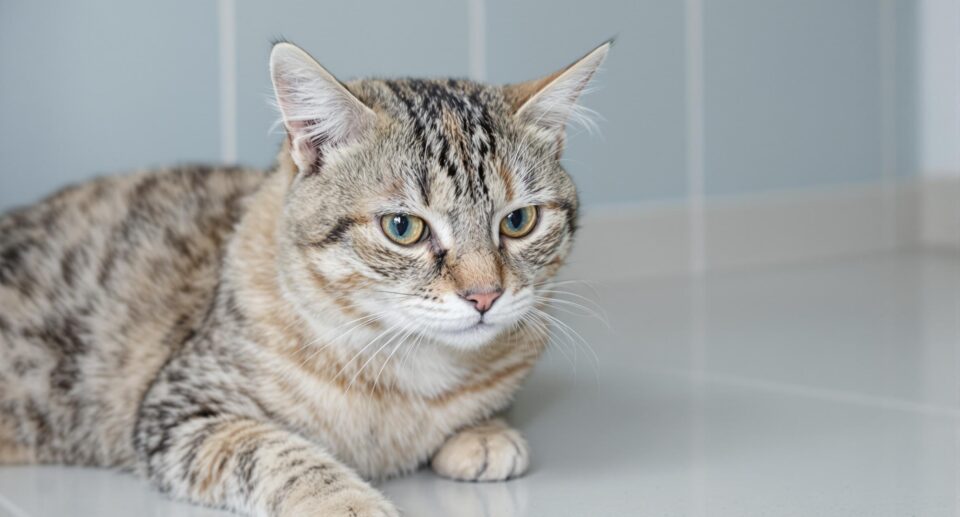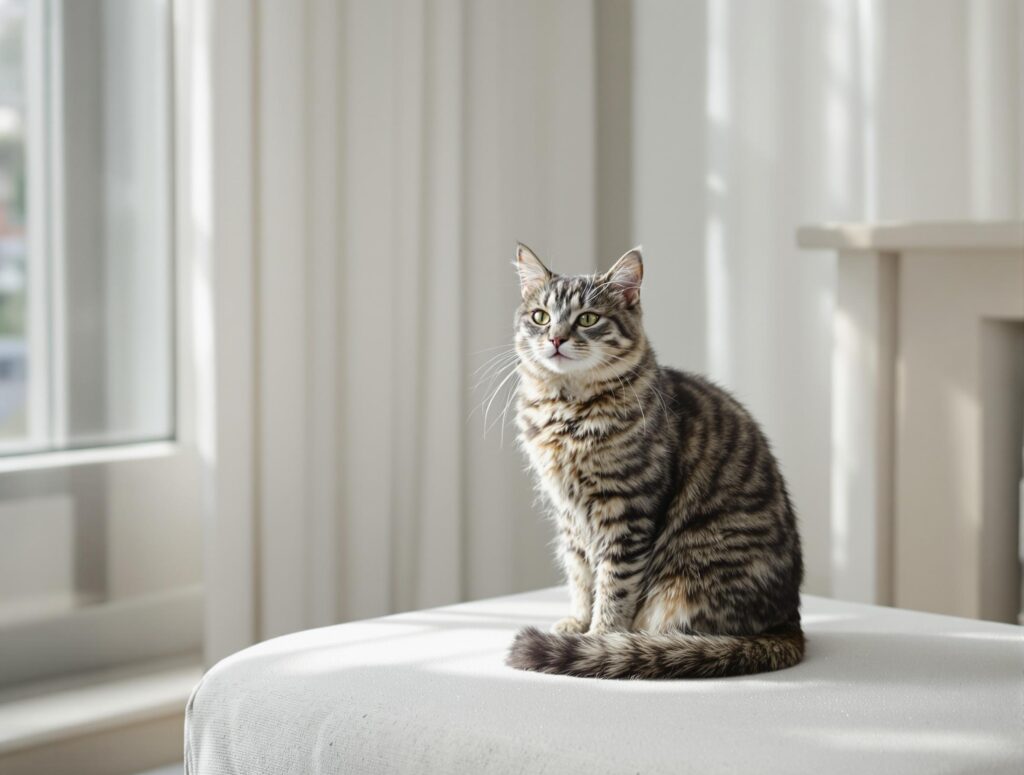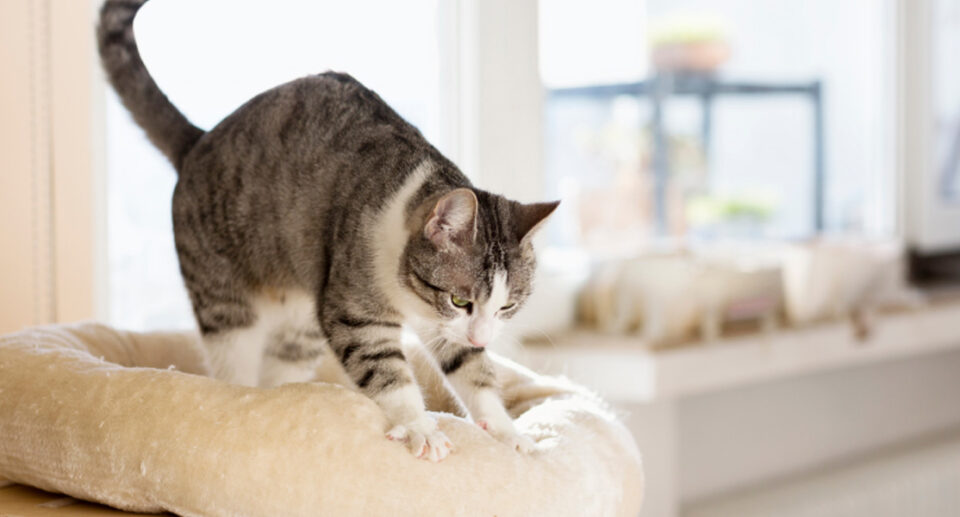Cat Diarrhea: Causes, Symptoms, and When to See a Vet

Key Takeaways:
- Occasional diarrhea in your cat may not be serious, but symptoms that last more than a day deserve a closer look.
- Food changes, parasites, stress, or underlying conditions are common triggers worth keeping on your radar.
- Quick action and early vet care can help your cat recover faster and avoid complications like dehydration.
What Is Cat Diarrhea?
No one likes dealing with a messy litter box, but diarrhea is a sign that your cat’s body is trying to get rid of something. Sometimes it’s mild and short-lived—other times, it points to something that needs medical care. According to veterinary experts, cats experiencing digestive upset can become dehydrated rapidly, with senior cats and kittens being especially vulnerable to complications. Learning to recognize which is which can make all the difference in your cat’s recovery.
At PetHealthMD, we help you make sense of symptoms like this with practical guidance and trustworthy advice. In this article, we’ll walk through the most likely causes of cat diarrhea, what warning signs to watch for, and how to decide when it’s time to call the vet.
Common Causes of Cat Diarrhea
Cat diarrhea can come on quickly, and there are a few common culprits behind it. One of the biggest triggers? Changes in what or how your cat eats. Even a slight shift can upset their stomach.
Food-Related Causes
- Introducing a new type or brand of food too quickly
- Eating spoiled food or something they shouldn’t have
- Sudden changes in meal timing or portion sizes
- Food sensitivities that develop over time
Other Triggers and Health Issues
Stress can also throw your cat’s digestive system off balance. Moving to a new home, meeting unfamiliar animals, or even loud household changes can lead to loose stools.
Other common causes include:
- Parasites like tapeworms, roundworms, or Giardia (often picked up from contaminated water, soil, or prey)
- Infections from bacteria or viruses that irritate the gut
- Chronic conditions such as:
- Inflammatory Bowel Disease (IBD) – involves long-term inflammation of the intestines
- Colitis – often leads to frequent, urgent diarrhea with mucus
- Inflammatory Bowel Disease (IBD) – involves long-term inflammation of the intestines
If the diarrhea lasts more than a day, or if your cat seems tired, stops eating, or you see blood in their stool, it’s time to call the vet. These could be signs of something more serious that needs medical attention.
For parasite prevention and treatment options, explore Cat Dewormers and Parasite Control on 1800PetMeds.

Cat Diarrhea Symptoms to Watch For
As a cat owner, knowing what to look for helps you act quickly when your pet experiences digestive issues. Your careful observations can make a real difference in your cat’s comfort and health. Here are the main signs to watch:
- Check for dehydration: Feel your cat’s gums—they should be moist, not sticky. Gently pinch the skin between their shoulders; it should spring back quickly. Sunken eyes or reduced energy can also point to dehydration.
- Observe litter box habits: Notice if your cat visits the litter box more often than usual or seems unable to wait to get there. Some cats might have accidents outside the box when dealing with diarrhea.
- Examine stool characteristics: Pay attention to consistency and color changes. Loose, watery stools or any signs of mucus or blood may signal digestive issues and deserve prompt veterinary care.
- Track eating patterns: Note changes in appetite or water consumption. Reduced interest in food combined with diarrhea may indicate digestive discomfort.
- Watch overall behavior: If your cat hides more than usual, acts lethargic, or reacts negatively when you touch their belly, it could signal pain or illness.
Remember, you know your cat best. Any notable changes in their usual patterns deserve attention.
How to Treat Cat Diarrhea at Home
Seeing your cat unwell can be stressful, but there are simple ways to help them feel better at home. Start by keeping them comfortable and monitoring their water intake. Many cats become dehydrated during stomach upsets, so place fresh water bowls in multiple locations around your home and encourage regular drinking.
Unlike common advice for other pets, cats need to continue eating when they have tummy troubles. Small meals help prevent a serious condition called hepatic lipidosis. Offer plain, cooked chicken or turkey (without seasonings), white rice, or commercially available prescription foods recommended by your vet. Space these small meals 4–6 times throughout the day.
Home Remedies for Cat Diarrhea
- Plain, unsweetened pumpkin puree (1 tablespoon mixed in meals twice a day)
- Bone broth without seasonings for extra hydration
- Vet-approved probiotics to support digestive health
For digestive support products, check out Cat Digestive Health Supplements available on 1800PetMeds.
When to Call the Vet
Contact your veterinarian right away if you notice:
- Blood in the stool
- Vomiting along with diarrhea
- Decreased appetite for over 12 hours
- Signs of pain or distress
- Lethargy or weakness
Your vet may recommend tests or treatments tailored to the underlying cause, from dietary changes to parasite control or medication.
When to See a Vet for Cat Diarrhea
Occasional digestive trouble happens, but ongoing or severe diarrhea is never something to brush off. Whether it’s caused by diet, parasites, or an underlying condition, knowing when to step in makes all the difference for your cat’s health.
For ongoing issues or to prevent future flare-ups, visit Cat Health and Wellness Products on 1800PetMeds for solutions that support your cat’s digestive care and overall well-being.
At PetHealthMD, we aim to support pet owners with clear, practical advice. When something’s off with your cat, we’re here to help you take the guesswork out of what to do next. The earlier you act, the easier it is to get things back on track.





